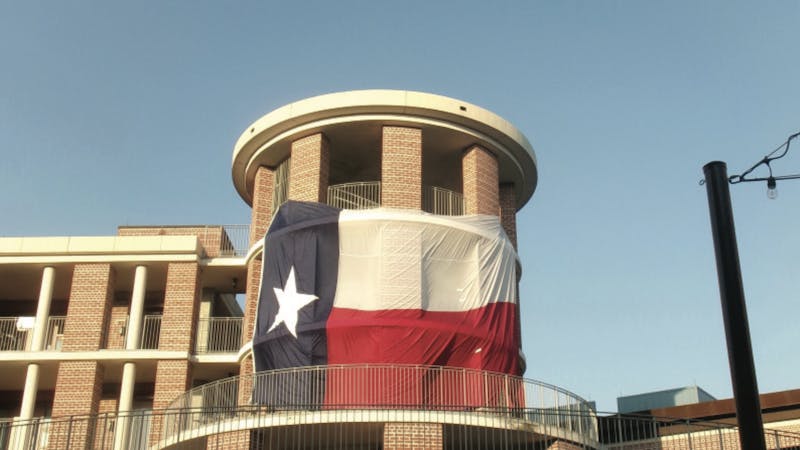SA tables newspaper amendment
The Student Association has pushed deadlines back until next semester for a bill that would suggest ways to get outside newspapers brought to the residential colleges. The SA had originally hoped to have a final draft of the bill ready to present by the end of the semester, but talks about financing and concerns from college leadership have postponed the bill. Drafted by SA Secretary Yoonjin Min, Lovett College sophomore Brian Strasters and SA President Georgia Lagoudas, the bill originally proposed to institute a $5 increase in student fees to cover costs for the newspapers.
Jones College President Steven Boswell posed the contentious question of where newspaper funds that were in place until the 2005-06 school year had gone. The bill was tabled as no definite answer could be given at the time, he said.
"When the hard questions were asked about these missing student funds, no one took the initiative to provide the Senate with any concrete answers," Boswell said.
Prior to the 2005-06 school year, student fees included a list of individual fees, such as health service fees, student activities fees, a newspaper fee and a few others, Associate Dean of Undergraduates Matt Taylor said. Students who lived in the colleges were charged $9 per year to cover the cost of newspapers delivered to the colleges, Vice President for Finance Kathy Collins said.
The fee applied through fiscal year 2004, when President David Leebron decided to consolidate a large portion of the fees into general tuition, Collins said. In fiscal year 2006, the university added money to the Dean of Undergraduates' budget to cover the cost of newspapers, Collins said.
During a budget crunch in 2008 which coincided with increased newspaper prices, the budget in the Office of Dean of Undergraduates was no longer sufficient to fund the newspaper program, Taylor said. The Office of Dean of Undergraduates chose to cut the program to meet other required budget cuts after consulting with the masters, Collins said. The cut was made on the assumption that colleges could finance the program with other funds available to them, Collins said.
Boswell said he can remember conversations during his freshman year among the college leadership regarding newspapers when the program was first stopped. The SA currently faces the same concerns with the new proposal, namely how much the program will cost and which newspapers should be provided.
Some colleges, like Will Rice, decided to fund a newspaper program through their own college budgets since there was no agreement as to what should be done after the administration announced that there were not enough funds to continue the program, Jones Senator Nick Rizopoulos said.
The bill that was proposed in the SA by Min, Strasters and Lagoudas aimed at making sure all colleges received outside newspapers. Rizopoulos, a Jones College sophomore, said that other concerns for the bill included whether to provide another set of funds for newspapers to colleges that already receive them or to let the funds go back to the college as a sort of reimbursement. The choice of which paper to receive, the Houston Chronicle or the New York Times, also divisively split college leadership, Boswell said.
"Some [college leaderships] said that if you get the Houston Chronicle, we'll get the New York Times anyways, so you're only hurting us," Boswell said.
Other problems included the hope that the administration might be able to fund the program – if not full time, then for a semester so that the SA could propose the increase in student fees, Min said.
"In the end, the [administration] doesn't have money to pay for the newspapers," Min said "That's why it got cut in the first place."
With the number of problems that have surfaced concerning the bill, Min is unsure whether the bill will end up being passed.
"I personally don't see it happening," Min said. "We were looking at how much blanket tax everyone pays for different organizations, and there is a thought that we should pay for already existing organizations that are underfunded instead of starting new ones."
Min said that she and Strasters will continue working on the bill – possibly seeking alternative ideas such as online subscriptions.
More from The Rice Thresher
Rice lands high on Niche, Forbes college ranking lists
Rice recently ranked No. 10 on Niche’s Best Colleges in America list and No. 12 on Forbes’ annual America’s Top Colleges list in 2026. It was also recognized in several categories by the Princeton Review, placing in the top 10 in four categories.
From post-human novels to augmented reality, Rice hires new faculty
Rice welcomed 97 new professors this fall across disciplines, including a posthumanist Harvard scholar, a husband-wife duo and a computer science professor who graduated from Rice thrice.

First public of the year reckons with threats of a dry campus
After a Dis-O that saw four times as many calls for intoxication-related transports of students to the hospital compared to the prior three years, Cory Voskanian, a Martel College socials head tasked with planning the first public of the year, said that he was feeling the pressure.


Please note All comments are eligible for publication by The Rice Thresher.